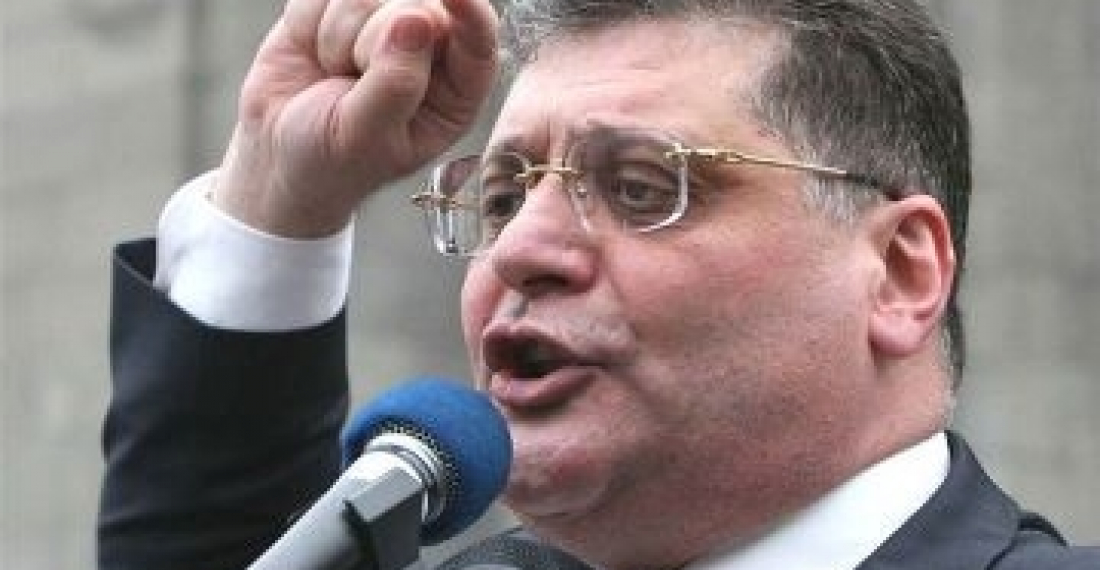The Armenian authorities have lost their foreign policy priorities and no longer refuse anyone expressing readiness to join any international structure. This policy, which is called complementary by mistake, has run its course, Aram Karapetyan, Leader of oppositional New Times Party, says in an interview with ArmInfo.
Over the 20 years of its independence, he says, Armenia has constantly joined some structures. It strived for NATO in early 90s, then joined CSTO, now demonstrates commitment to European values. "And what are our achievements of those years? There is no economy as such. Half of the citizens left the country. The only achievement is the victory in the Karabakh war. There is a real mess in our foreign policy. The leadership of Armenia has found itself in rather an awkward situation and faced a choice, as it is no longer possible to play with the world force centers," he says. The oppositionist is sure that the pro-Russian vector of the country's foreign policy is the most reasonable. The two countries' historical relations have made Armenia and Armenians "insiders" in Russia. Unlike Russia, he says, the EU is requesting loans from Russia and China to retain euro. "There are realities that cannot be ignored, I think. Armenia has never been politically self-sufficient, except the period under King Tigran Mets. Many Armenian kings were brought to power by the super powers of that time: Babylon, Parthian empire, Rome, and Byzantium. Armenia still lacks enough political and economic resources to live and develop independently without being incorporated into a global structure," Karapetyan says.
As for Russia, Karapetyan thinks that there is no need of persuading Russians to invest in Armenia. They are well aware of the necessity to develop Armenia's economy. In addition, he says, Russia has all the minerals known to man.
Armenian oppositionist urges authorities to develop pro-Russian vector in foreign policy
Armenian oppositionist urges authorities to develop pro-Russian vector in foreign policy







